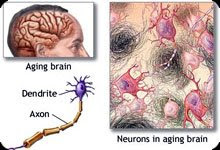







There is evidence that our brain responds to the foods we eat, and that nutrients can trigger neurotransmitters and hormones that impact our mood and improve our mental sharpness. Not only has this been shown in children at school, but studies have also found that adults can help maintain brain health as they age.
The way things are going, I don’t anticipate a break until at least Thanksgiving. So until then, here’s what I’m focusing on during this grueling work-a-thon.
Brains are very hungry
The brain and nervous system are the hungriest organs—meaning that they require a constant supply of energy that can only be delivered in the form of glucose, the end product of carbohydrate metabolism. The brain uses more than 20 times the energy ounce-per-ounce of exercising muscle than any other part of the body; in fact, as we age, it’s the natural loss of gray matter that makes a significant contribution to our drop in metabolism.
What this means is that breakfast is very important, and so is eating every two to three hours throughout the day. The constant stream of glucose to the brain will help keep your concentration and mood elevated. A meal or snack that contains low-glycemic carbohydrates, or combines carbs with lean protein and/or some healthy mono or polyunsaturated fats, will help keep the fuel to the brain steady.
Eat a slow-burn breakfast
Reams of research show that kids who eat a healthy breakfast have improved concentration, and they perform better on tests compared to those that skips out on the a.m. meal. I’m no student, but I do know that eating my low-glycemic steel-cut oats gives me energy to start the day and raises my blood-sugar levels that have plummeted overnight. Other studies have found that a breakfast of low-glycemic-index foods like oatmeal increased mental acuity over high-glycemic-index breakfasts with the same number of same calories.
Eggs with a whole-wheat product—toast are great option to boost brainpower. Eggs contain choline, which helps the body make the memory-boosting chemical acetylcholine.
Eat more fruits and veggies
You’re probably aware of studies showing that blueberries improve the memory and cognitive function of aged animals, but all fruits and veggies are great cerebral choices. In addition to providing carbs to fuel the brain, they supply folic acid, a B-vitamin integral for the nervous system. In addition, they’re loaded with powerful antioxidants that help keep the blood vessels of the brain healthy and more flexible so that the brain gets adequately nourished.
I’m making more of my snacks fresh or dried fruits and veggies. Today I had raisins in my oatmeal, a banana with peanut butter at lunch, and a spinach salad with my dinner.
Enjoy caffeine and tea
affeine has been shown to improve concentration in studies, and tea has also been shown to have a compound, L-thiamine that impacts alpha waves in the brain. Alpha waves are supposed to help the brain focus when it is bombarded with all kinds of competing tasks (read: nonstop emails and phone calls). The combination of L-thiamine and caffeine in tea is akin to rebooting my mind to help me focus on finishing one task at a time, instead of being completely frazzled by a long to-do list all day.
Be a (healthy) fat head
Yes, your brain is a muscle, but about 70% of its gray and white matter is composed of fat. And it’s not just any fat; it’s the long-chain polyunsaturated fats that are part of the cell membranes and crucial messenger system of the brain.
These beneficial fats are called DHA and EPA, and you can find them in fish and algae-based supplements. Research shows that adults who eat the most tuna and other fish rich in DHA have healthier brain mass as they age, compared to those who eat the least amount of fish. But there’s one caveat: Interestingly, fried fish consumption does not provide the same brain-boosting benefits.
Make mental moves
nothing goes better with a healthy diet than a healthy lifestyle. To keep the blood and nutrients flowing to your brain, strive to get daily exercise. Exercise also clears your mind, gives you a natural endorphin rush, and staves off depression. Research also shows that among older adults, those who exercise the most have better cognition and improved mental states compared to those who move the least.
Monday, May 25, 2009
Foods That Boost Your Health
Posted by Meenu Khare at 4:35 PM
Labels: Food, Health, Science and Technology, slow-burn breakfast
Subscribe to:
Post Comments (Atom)


0 Comments:
Post a Comment